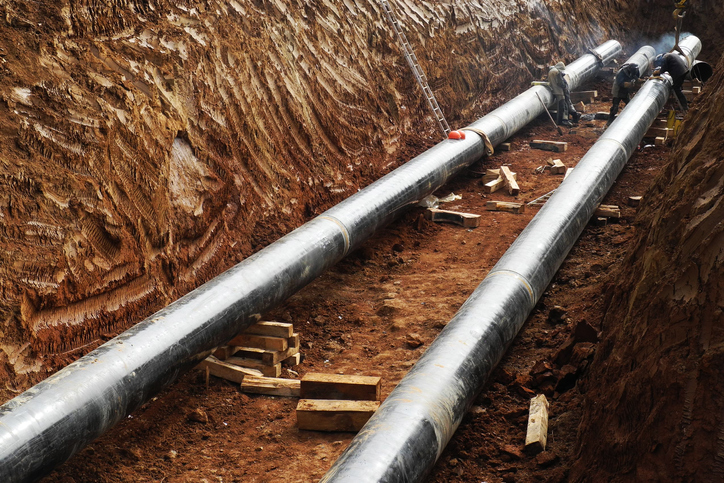The New York Department of Environmental Conservation (DEC) and the New Jersey Department of Environmental Protection (DEP) last week approved the required permits for the Northeast Supply Enhancement (NESE) pipeline project.
The approval paves the way for the Transcontinental Gas Pipeline Company to build a new, 37-mile addition to the Williams Transco natural fracked gas pipeline system, which runs from Texas through Pennsylvania into parts of Western New York. The new addition will bring gas into New Jersey and downstate New York, including Brooklyn, Queens, and Long Island.
The recent approval comes after three previous rejections, including most recently in 2020, after Williams Transco, the company expected to construct the NESE project, failed to demonstrate compliance with state and federal standards for water quality.
After reviewing the company’s May 2025 application, however, the DEC and DEP respectively concluded that the most recent plan comports with applicable water quality standards. Notably, approximately 17 of the 37-mile NESE addition will be in New York waters. While New York usually requires a six-foot depth for all pipelines, the DEC determined that for this project, a four-foot depth is acceptable because the pipeline addition will not be constructed in an area with electromagnetic fields, or in an area that is heavily fished.
Proponents of the project cite the New York metro area’s demand for energy without the necessary infrastructure in place to meet the demand. New York’s grid operator recently warned that the state could face reliability challenges in as soon as summer 2026.
According to New York Gov. Kathy Houchel, “a top priority is making sure the lights and heat stay on for all New Yorkers as we face potential energy shortages downstate as soon as next summer.” She also announced that she is taking an “all-of-the-above” approach to energy.
Hochul recently joined the governors of New Jersey, Massachusetts, Connecticut, and Rhode Island, announcing that, while renewable energy sources are important, they must be “contemplated by a diverse mix of resources – including nuclear powder, natural gas, hydropower, and other technologies.”
The NESE pipeline project, however, has also faced stiff opposition from environmental groups and local officials, the latter of which recently wrote a letter to Hochul and the DEC expressing concern about the pipeline. New York Rep. Jerry Nadler, for example, noted that “the NESE pipeline will cut through sensitive marine ecosystems off Staten Island and the Rockaway Peninsula, potentially dredging up contaminated sediments . . . It threatens coastal economies that depend on clean water, recreation, tourism, while exposing nearby communities to health and safety risks.”
According to Williams Transco, the NESE pipeline project will add enough capacity to supply natural gas to the equivalent of 2.3 million homes, create about 2,000 jobs, and generate $548 million in economic activity.
As of now, the NESE project is greenlit, with construction expected to commence before the end of the year and completion slated for the end of 2027. The project, however, will be closely monitored by environmental groups and other opponents of the plan, many of which indicated their intent to bring lawsuits for each purported violation of state and federal environmental laws. The Natural Resources Defense Council, for example, has already announced that it will be challenging the New York and New Jersey permit approvals in federal court.

